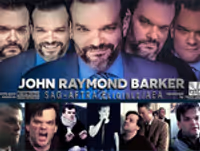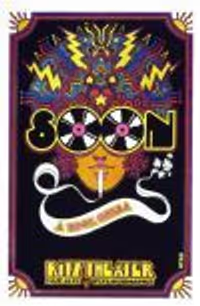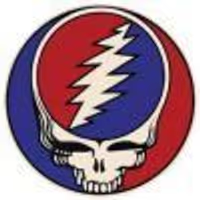The difference between opera and musical theatre
#1The difference between opera and musical theatre
Posted: 3/16/07 at 6:46pm
We were discussing this in my opera class the other day, and my teacher claimed when it *really* comes down to it, the only difference exists where they stack them at Fye Records.
Is this the case, or is there a well-accepted, defined difference between opera and musical theatre? Do you agree with it? What do you think is the difference (and please indicate whether this is just your opinion or if this is fairly widely accepted).
What about pieces like Candide, that people say really can be either/or? Do composers have a say in whether they want to call their piece musical theatre or opera? is it just whoever produces it? If there are tangible differences, are they always followed or do people involved with the shows, like producers and/or composers/writers make the ultimate decision whether they want the piece considered an opera or a musical?
Thesbijean
Broadway Legend Joined: 12/9/04
#2re: The difference between opera and musical theatre
Posted: 3/16/07 at 6:49pm
Well, opera's are typically all sung through and in a language other than English (not that those two factors an opera make, just that's happens to be the case).
#2re: The difference between opera and musical theatre
Posted: 3/16/07 at 7:10pm
From Dictionary.com:
OPERA: "an extended dramatic composition, in which all parts are sung to instrumental accompaniment, that usually includes arias, choruses, and recitatives, and that sometimes includes ballet."
MUSICAL: "a play or motion picture in which the story line is interspersed with or developed by songs, dances, and the like."
Jazzysuite82
Broadway Legend Joined: 2/6/05
#3re: The difference between opera and musical theatre
Posted: 3/16/07 at 7:29pm
I think that definition is flawed. Operas have storylines, otherwise it's a song cycle. There is no difference the two definitions really.
People like Micheal John LaChiusa have written both operas and musicals and listening to them, I don't hear much of a difference. I've heard dialog in opera and musicals fully sung through.
Somdheim says the only difference is where it's played. Operas are in opera houses (with an opera audience) and musicals are in theatres (with theatrical audiences). I think he's saying it's more about audience expectations than anything.
#4re: The difference between opera and musical theatre
Posted: 3/16/07 at 7:32pm
"The difference between opera and musical theatre"
About 200 pounds.
blocked: logan2, Diamonds3, Hamilton22
vmlinnie
Broadway Legend Joined: 6/19/06
#5re: The difference between opera and musical theatre
Posted: 3/16/07 at 7:33pm
I see it that Operas are sung-through, and Musicals are not, and Rock-Operas like Les Mis blur the line.
They way they are run is very different. Where in the world is there a place, for Opera, like Broadway or the West End, where Operas run open-ended for years on end?
deep-delving, dark, deliberate you would say
browsing on spire and bogland; but today
our sky-blue slates are steaming in the sun,
our yachts tinkling and dancing in the bay
like racehorses. We contemplate at last
shining windows, a future forbidden to no one.
Derek Mahon
"Maybe all one can do is hope to end up with the right regrets."
Arthur Miller
Julian2
Broadway Legend Joined: 8/10/06
#6re: The difference between opera and musical theatre
Posted: 3/16/07 at 7:37pmI think it all just has to do with where it plays and what its called first. Its really more o difference of culture and atmosphere, not so much an actual artistic line (ie. Musicals/Plays with Music).
#7re: The difference between opera and musical theatre
Posted: 3/16/07 at 7:53pm
After doing Musical Theatre for many years and now, working for the LA Opera, I have seen some HUGE differences.
Here's just a few that I noticed:
Operas tend to be MASSIVE in scale. Our cast of Tnnhauser must have a cast of at least 150 with probably just as many musicians in the pit.
The Stage Manager calls EVERYTHING, including backstage calls, telling the actors when to get dressed, 5 minute warning to places, as well as places. Now, this is for EVERY entrance throughout the show for every character, including the Chorus and the Supers.
Opera Singers don't wear microphones, 99% of the time.
Because of this, operas don't perform the general '8 shows' a week.
The curtians calls are the longest in history.
No, operas don't run for years on end. That would kill the singers
Caleb
Understudy Joined: 11/16/04
#8re: The difference between opera and musical theatre
Posted: 3/16/07 at 8:13pm
The differences are relatively minor, and the whole distinction is mostly one of semantics. Opera also carries a conotation of being the more legitimate form of composition, which is really not the case, though it usually attracts more academic and musically experimental composers. Make no mistake, though, there are tons of really dreadful operas. Opera doesn't mean good or better. And just because something is a musical doesn't mean it doesn't contain real artistic craft.
Some things are almost always true:
Operas are not performed for profit, and musicals often are.
Operas are done in opera houses, musicals in commercial theaters.
Opera is not amplified, musical theater is.
Those are all production issues. In terms of the actual material involved in the various forms, a general rule that can be followed is that opera is primarily a music-driven dramatic presentation, and musical theatre is a lyric-driven dramatic presentation. There are operas with dialogue, and there are through-composed musicals, but that doesn't classify them by themselves. An opera doesn't rely on audience members being able to understand the text. Due to the very legitimate and resonant singing employed by opera singers, consonants are often indistinguishable, but it doesn't really effect a viewer's comprehension of the story. This is also why operas are usually performed untranslated. The plot and emotion is conveyed through the music itself, and everything in the opera is there to serve the music. Contrast this with musical theatre, where the lyrics convey ridiculous amounts of information and really drive the story forward. If you don't understand every line, you could be very lost for the rest of the evening. This isn't to say that music in musical theatre isn't integral to the telling of the story, but it isn't the most important feature of the show. Everything in the show is there to serve the story, not the music.
#9re: The difference between opera and musical theatre
Posted: 3/16/07 at 8:19pmWe translate everything, even the stuff sung in English.
vmlinnie
Broadway Legend Joined: 6/19/06
#10re: The difference between opera and musical theatre
Posted: 3/16/07 at 8:19pm
Operatic singers train in specific roles, and are very clealy defined. You're either a mezzo, or a soprano, etc. Although in Musicals performers obviously ave their range limits, it's not as strictly defined. When was the last time you heard of a man who's trained in the roles of Marius in Les Mis, or a girl who has studied various roles like Elphaba, Mimi...
It's just a very different set up.
deep-delving, dark, deliberate you would say
browsing on spire and bogland; but today
our sky-blue slates are steaming in the sun,
our yachts tinkling and dancing in the bay
like racehorses. We contemplate at last
shining windows, a future forbidden to no one.
Derek Mahon
"Maybe all one can do is hope to end up with the right regrets."
Arthur Miller
Fenchurch
Broadway Legend Joined: 11/16/06
#11re: The difference between opera and musical theatre
Posted: 3/16/07 at 8:26pm
Not all operas are sung through, Carmen, Les Contes d"hoffman, many many operas have dialogue.
and in my opinion, some of the very best operas are in English, composers like Menotti, thompson, Heggie, Bolcom, Bernstein, Blitzstein, and countless others have written operas in Enlgish that have become standards in the repertoire.
Carlisle Floyd's Susannah, Lee Hoiby's The Tempest, etc etc, are all examples of operas originally written in English.
"Fenchurch is correct, as usual." - muscle23ftl
#12re: The difference between opera and musical theatre
Posted: 3/16/07 at 8:55pm
Oh please, people -- a little historical perspective, here. Operas like CARMEN and MAGIC FLUTE were the "musical theatre" of their day. Cut through it, and there's little difference between SWEENEY TODD and THE CORONATION OF POPPEA, just as there's little between CAROUSEL and TURNADOT.
Scale has zip to do with it. The best production of CARMEN I've ever seen had four performers. I just finished designing MEFISTOFELES for Taconic Opera, and they ran it with a cast of twenty five -- and it's a huge work. Like everything else, it depends on how you approach the material, not the number of spear carriers you can cram on the stage.
Mikes have nothing to do with it. Even at the Met, the performers are miked and have been for years, a topic long of contention in operatic discussion circles.
Where the work is performed has nothing to do with it. Did LITTLE NIGHT MUSIC change from one genre to another when NYCO performed it?
And if you've ever been to Europe, you know that opera there is a *big* business, on the scale of professional theatre here. DON GIOVANNI is Italy's Show Boat.
>> About 200 pounds.
Tell that to Nathan Gunn and see if you can leave the room without serious bodily injury. Opera productions are moving away from the "fat lady with the helmet" to singers who are just as much eye- and ear-candy.
#13re: The difference between opera and musical theatre
Posted: 3/16/07 at 8:57pm
and Rock-Operas like Les Mis blur the line.
How is Les Mis rock?
#14re: The difference between opera and musical theatre
Posted: 3/16/07 at 8:58pm
"there's little difference between SWEENEY TODD and THE CORONATION OF POPPEA"
Only about two hours of boring....
#15re: The difference between opera and musical theatre
Posted: 3/16/07 at 9:02pm
>> Only about two hours of boring....
Nah, that's the new marketing line for SPRING AWAKENING.
#16re: The difference between opera and musical theatre
Posted: 3/16/07 at 9:22pmThere isn't a difference. None of the examples of how they are different are either accurate or definable. It's all music theatre. "operas" and "musicals" sit on a vast spectrum of music theatre.
#17re: The difference between opera and musical theatre
Posted: 3/16/07 at 9:31pm
I always thought of it as whether the music or the drama is the dominating force. In opera, the drama and everything else serves the music. In a musical, ideally the music and everything else serves the story.
I think of an opera as a musical work with dramatic elements, and a musical as a dramatic work with musical elements.
Obviously there's crossover, but the biggest difference is that the conductor has final say in an opera, whereas a director has the final say in a musical. The last, most prominent name in the billing of a musical is usually the director. In an opera, it's the conductor. He (or she) gets entrance applause (before each act) and usually bows with the company at the final curtain call.
#18re: The difference between opera and musical theatre
Posted: 3/16/07 at 9:35pmtemms, I think that's actually a great distinction of whether or not the production is an opera or a musical. But as for the written piece that comes in the mail--I don't think one can clearly define.
#19re: The difference between opera and musical theatre
Posted: 3/16/07 at 9:53pm
Of course the definitions are flawed, they're from DICTIONARY.COM!!! ![]()
SweeneyPhanatic
Broadway Star Joined: 1/4/06
#20re: The difference between opera and musical theatre
Posted: 3/16/07 at 11:30pm
Technically, if operas and musicals are both plays with songs that are performed in theatres, aren't they both musical theatre? As with any category, there are sub-categories.
Plays:
-Straight
--Comedy
---Dark
---Broad
---etc.
--Drama
-Musical
--Opera
---Comedy
---Drama
--Musical play
blah, blah, you see what I mean.
#21re: The difference between opera and musical theatre
Posted: 3/16/07 at 11:37pmI think that the major difference is that Musical Theater productions have characters that are full of hope and optimism, wheras characters in an Opera are often in anguish and dispair.
#22re: The difference between opera and musical theatre
Posted: 3/17/07 at 12:21amLa Fille du Regiment? Don Pasquale? Il Barbiere di Siviglia? Il Turco in Italia? Falstaff? Le Nozze di Figaro? All operas at which I laughed my ass off. Not too many characters in despair.
bwaylvsong
Broadway Legend Joined: 7/28/05
#23re: The difference between opera and musical theatre
Posted: 3/17/07 at 12:25amAs a performer who plans on pursuing a career in both musical theatre AND opera, I can say that there is no specific difference. However, one can usually tell whether one is listening to an opera or a musical due to the style of the music and the way it is sung. Of course, there are many exceptions to the rule. I see it all as musical theatre; opera just requires (usually) more demanding singing and is often in a foreign language.
#24re: The difference between opera and musical theatre
Posted: 3/17/07 at 12:38am
Les Miserables is NOT a rock opera. Neither is a show like Phantom ( I have heard people say that it was). Rock operas are things like The Who's Tommy ( the original one that came out in 69 not the OBC) , Neil Young's Greendale, Frank Zappa's Joe's Garage, Phish's The Man who Stepped into Yesterday ect ect. Rent is the only true example of a rock opera that is on broadway.
A rock opera is an opera that is fully driven with rock and roll music. I have heard people say that things like Phantom and Les Miserables are rock operas because they are on broadway and in opera format.
Videos









